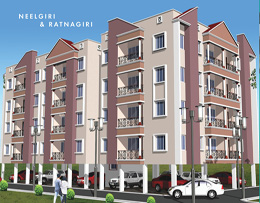FAQs
- What is the list of documents that you should verify before booking a property?
- Confirm the approved plans from the appropriate authority are in place.
- Check that all other permissions from various authorities are in place. E.g. Utility Companies, Environment clearance, Airport Authority, etc
- Confirm that the Land title is clear and there is no disputes/litigation (Title Certificate).
- Confirm Builder has the Intimation of Disapproval (IOD) and commencement Certificate (CC) to start construction.
- Have the agreement evaluated by an Advocate. Check possession date promised and provide for penalty if Builder does not deliver as agreed.
- Check and negotiate the payment schedule.
- Do not book in Pre-launch without executing and registering the agreement. In Maharashtra, it is mandatory for Builder to do both at inception stage itself.
- List of documents to verify at the time of registering your property
- Approved plans
- Title Certificate from Advocate of current date
- Copy of IOD/Commencement Certificate
- Stamp duty paid receipt
- Demand Draft for payment of Registration fees.
- Property Card showing CTS No. of plot
- PAN cards of Sellers and Buyers
- Khata Extract
- Due diligence before buying a resale property
- Check for a duly stamped registry
- Ensure no dues are accorded to the builder
- Check for seller’s name in municipal records
- Confirm seller’s membership in the society (if formed)
- Ensure there are no pending bills, charges or taxes
- Make sure that the property is mortgage free
- Sanctioned Building Plan (to ensure no unauthorized constructions)
- Previous title documents (that chain of title is complete)
- What all documents should you have at the time of possession?
- All original chain of agreements form part of the title documents and must be obtained by the buyer.
- Do remember to obtain the original registration receipts and the original stamp duty receipts.
- A letter of possession duly witnessed by two witnesses confirming the physical handover of the premises.
- In case of a Society, the original share certificate together with all transfer forms duly executed.
- Proof of payment of all dues such as maintenance, electricity, phone, water, property taxes upto the date of handing over possession.
- A limited power of attorney from the Seller(s) authorizing the buyer(s) to sign all documents and applications etc. pertaining to the said premises.
- An NOC from the Society or other body confirming that they have no objection to the transfer.
- What is a sale deed?
A sale deed, also called a “conveyance”, is a document which transfers immovable property be it land or a house, flat, office or other structure to another person. In almost all cases, the sale deed must be registered compulsorily except in the case of resale of units in existing cooperative societies where the state law grants a specific exemption from registration. Regardless, all sale deeds are liable for stamp duty and the rates vary from state to state. Also the duty depends upon various factors, such as age of building, location and type of unit and so on. - What is a title deed?
A title deed is a document that proves the right of a person to an immovable property. A person can acquire an immovable property by various means and a properly stamped and executed document evidencing the transaction is a title document. For example a sale deed, a release deed, a relinquishment deed, a gift deed, a family settlement deed, a partition deed, a will all are evidence of how a person has acquired an immovable property and may be called title deeds. - What is a conveyance deed? Why is it required?
The word conveyance means the transfer of ownership or interest in real property from one person to another by a document, such as a deed, lease, or mortgage. In India, transfer of property or rights in immovable property is governed by the Transfer of Property Act, 1882. For the transfer of any immovable property or rights in immovable property, it is necessary to execute a conveyance deed. - What is a building completion certificate?
A building completion certificate is the final document granted by the plan sanctioning authority and usually follows the occupancy certificate. This document certifies that all acts necessary in connection with the construction of a building are complete. - What is an occupancy certificate?
An occupancy certificate is granted by the plan sanctioning authority once the building is complete and ready for Inhabitation. In some places, an official water connection is granted only after the OC has been obtained. This document is given after verification that the construction has been carried out in accordance with the approved plans. The builder is not entitled to give possession and the unit buyer is not allowed to occupy the unit till the OC has been obtained. Further, the property comes into existence on and from the date of granting of OC. Property taxes are also levied as a unit from the OC date.
- What Is The Loan Amount Which Can Be Sanctioned?
HFCs sanction loan amounts is based on eligibility depending upon your repayment capacity (which takes into account your age, qualifications, assets, liabilities, stability of occupation, savings history) and according to your income. The maximum loan that can be sanctioned varies with housing finance companies and the generally, the maximum loan amount is 80 to 85% of the cost of your home. - When and how can an application be made for home loans?
An application for home loans can be made any time after you have decided to acquire/construct a property, even if the property has not been selected or the construction has not commenced. An application form along with the necessary documents has to be submitted to the respective finance company after which they would review the application and decide on its status. - How do I obtain a housing/commercial property loan?
Most purchasers, if eligible can obtain housing loans from 80% to 100% of total sales consideration including registration charges. Details of housing loans including application forms for both resident and non-resident Indians are available on websites of most housing finance companies. Websites of some leading housing finance companies are given below:
Kotak Mahindra Bank Home Loan
Axis Bank Home Loan
Allhabad Bank Home Loan
HDFC Home Loan
ICICI Bank Home Loan
SBI Home Loan
Our projects have been approved by major financial institutes like UTI, HDFC, Kotak Mahindra, HSBC, BHW Birla, SBI, ICICI etc. - How much time does it take to get an application processed and the loan getting sanctioned?
The processing of a home loan application, if the documents are in order takes around fifteen days and it takes another week for the company to check out the property papers and make the disbursement. - If I am not eligible for loans can I take a joint loan with any of my relative?
If you are an individual - your spouse, your parents, or even your children can be your co-applicants and their incomes can be clubbed with your income to enhance the amount of loan you are eligible for. It makes sense therefore, that the co-owner of a property has to be a co-applicant, but a co-applicant need not be the co-owner of the property. If you are a partnership or private limited company, any one of the directors or partners can be your co-applicant. - What are the fees and charges payable and when are they payable?
Processing fees and administrative fees, both payable upfront; are the charges payable to the Housing finance companies for sanctioning of Housing loans. The processing fee (fees at the time of application) could range between 0.8% to of the loan amount applied for, and is generally levied to cover the costs incidental to the application. Once the loan is sanctioned, an administrative fee of 1% of the loan amount sanctioned will have to be paid. - What is a fixed interest rate?
A Fixed interest rate for Home loans is one where the rate charged by the HFC on the loan amount is constant over the tenure of the loan. A fixed interest rate protects the borrower from a rise in home loan rates. While on the flip side, he may not benefit if the market rates were to fall. Therefore, it is advisable to go in for a fixed rate if you feel that the rate of interests in the market have touched rock bottom and the rates can only move upwards. - What is a floating interest rate?
A Floating interest rate for home loans is a loan where the interest rate which is payable is linked to the market rate e.g. the bank lending rate. The interest rate payable by you will also rise and fall as per bank lending rates which may fluctuate. - What are the repayment period options?
Repayment period options range generally from 5 to 15 years. A 20-year repayment period option is also provided by a few HFC's usually at a higher interest rate. - What is meant by an EMI (Equated Monthly Installment)?
An EMI refers to the fixed sum of money that you will be paying to the housing finance company every month against a loan amount borrowed for a fixed period of time. An EMI has two components, the principal component and the interest component. . The amount of the EMI depends on the quantum of loan, interest rate applicable and the term of the loan. The loan carrying the lower EMI for the same tenure is the cheaper option. - Can one repay the loan ahead of schedule?
It is possible to repay a loan ahead of schedule. A form of a penalty termed as a pre-payment penalty is payable to certain institutions which varies from one HFC to another. - Can a NRI avail of a housing loan?
Yes, NRIs can avail of a housing loan to buy a property in India. However, the terms and conditions for a NRI loan offered by the banks and HFCs are different than housing finance granted to Residents of India. - Can I pre-close my loan?
Yes. Loans can be pre-closed for a nominal charge before the termination. The immovable property was acquired by the seller in accordance with the provisions of the Exchange Control Rules/Regulations/Law in force at the time of acquisition, or the provisions of the Regulations framed under the Foreign Exchange Management Act, 1999;
The amount to be repatriated does not exceed (a) the amount paid for acquisition of the immovable property in foreign exchange received through normal banking channels or out of funds held in foreign currency non-resident account or (b) the foreign currency equivalent, as on the date of payment, of the amount paid where such payment was made from the funds held in non-resident external account for acquisition of the property; and
In case of residential property, the repatriation of sale proceeds is restricted to not more than two such properties.
- Do NRI require permission of Reserve Bank to acquire immovable property in India?
No. NRI's do not require any permission to acquire any immovable property in India other than agricultural / plantation property or a farm house. - Do NRI's require permission of Reserve Bank to transfer immovable property in India?
No. NRI do not require any permission to transfer any immovable property in India. Permission is required only in the case of transferring of agricultural or plantation property or farm house to another citizen of India NRI or PIO. - Do PIO require permission of Reserve Bank to purchase immovable property in India for their residential use?
Reserve Bank has granted general permission to foreign citizens of Indian origin, whether resident in India or abroad, to purchase immovable property other than agricultural land/farm house/plantation property, in India. They are, therefore, not required to obtain separate permission of Reserve Bank or file any declaration. - Can such property be sold without the permission of Reserve Bank?
Yes. Reserve Bank has granted general permission for sale of such property. However, where another foreign citizen of Indian origin purchases the property, funds towards the purchase consideration should either be remitted to India or paid out of balances in non-resident accounts maintained with banks in India. - Can NRI/PIO rent out the properties (residential/commercial) if not required for immediate use?
Yes. Reserve Bank has granted general permission for letting out any immovable property in India. The rental income or proceeds of any investment of such income is eligible for repatriation - Can NRI obtain loans for acquisition of a house/flat for residential purpose or office/showroom for commercial purpose from financial institutions providing housing finance?
Reserve Bank has granted general permission to certain financial institutions providing housing finance e.g. HDFC, LIC Housing Finance Ltd., etc., to grant housing loans to NRI for acquisition of a house/flat for self occupation subject to certain conditions. The purpose of loan margin money and the quantum of loan will be at par with those applicable to housing loans to residents. Repayment of loan should be made within a period not exceeding 15 years out of inward remittances or out of funds held in the investor's NRE / FCNR / NRO Accounts. - Can NRI/ PIO's acquire or dispose residential property by way of gift?
Yes, NRIs and PIOs can freely acquire immovable property in India by way of gift either from
(i) person resident in India
(ii) NRI
(iii) PIO However the property can only be commercial or residential.
Again NRIs and PIOs may gift residential/ commercial property to
(i) person resident in India
(ii) NRI
(iii) PIO
(iv) Foreign national of non Indian origin - with approval of RBI






